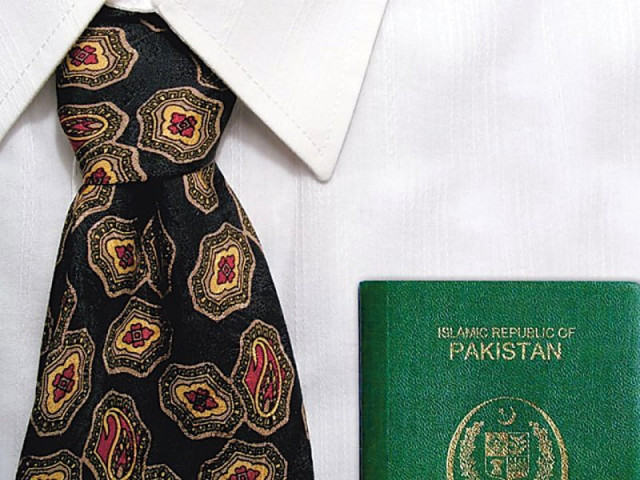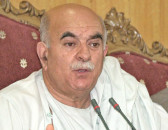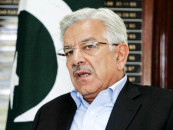Man-made mistakes: How free trade is devastating Pakistan’s polyester industry
Policymakers have failed to pay attention to country’s textile sector.

Policymakers have failed to pay attention to country’s textile sector. CREATIVE COMMONS
At the end of Korangi Industrial Road, there is a small cloth market in the impoverished Landhi area. Retailers here deal exclusively in women fabrics. Everything from lawn to chiffon and georgette is available round the year.
“To be honest, business has never been this good,” said Abdul Rehman, a young trader. “Inflation and economic slowdown hasn’t affected us. A few years back, women shopped during Eid and marriage seasons. But, now they want something new to wear every other week.”
Reshmi, crinkle and wash-and-wear cloth remain the particular favourite in the low income localities, he said. “There is demand for cloth made of polyester fibre.”
Bundles of cloth – thousands of tons of them – make their way into Pakistani markets from India and China every week. In many cases, the Afghan Transit Treaty is used to meet the local demand.
“Containers go to Afghanistan first. The cargo is unloaded and shipped back to Peshawar via Torkham border. All the textile products come to Peshawar’s Karkhana Bazaar. We all get supplies from there,” said another trader.
This uninhabited import in textiles is not limited to cloth. Everything from readymade children’s garments to synthetic fibre gets dumped in local markets. This should have alarmed officials at the commerce ministry especially as the textile industry is Islamabad’s industrial backbone.
But successive governments have found excuses to avoid the complex issue. Some have hidden behind the free-market argument, while others say local producers have failed to meet demand at the right price.
Most of the imported cloth is made up of man-made thread — polyester stable fibre (PSF) and polyester filament yarn (PFY). What happened to Pakistani synthetic industry is a sad story.
Our forgotten titan
Few companies have come to match the prestige of Dewan Salam Fibre – the best rated Pakistani company till the late 1990s. It was the largest PSF producer then. No one had any doubt about its growth prospects.
When Dewan Salman bought Dhan Fibres in 2000 for Rs4.2 billion, in what was the biggest such acquisition, the entire financial industry backed the deal. There was just one problem — the government had started slashing import duty on PSF.
Industry people argue that there were other reasons behind Dewan’s fall but none deny that competition created by cheaper imported fibre added to the woes of the debt-laden giant, which shutdown production a couple of years back.
PSF makers had initially thrived on high-tariff protection from imports, which was withdrawn after 2000. From 30%, the import tariff has been gradually reduced to 6% now.
But this happened without policymakers paying attention to the structure of Pakistan’s textile industry – something the country is paying for now.
Fighting it alone
Ibrahim Fibres, run by one of the most prolific business families, is now the largest PSF maker with a capacity of over 390,000 per annum.
“We are skewed towards cotton,” says Naeem Mukhtar, Ibrahim Fibres CEO. “Textile products we make use more cotton than synthetic fibre. That is completely opposite to what is happening internationally.”
Years of poor policies made downstream textile makers complacent. “Till the turn of the millennium, cheap cotton was easily available on easy credit terms. No one was trying to improve,” he said.
That improvement would have come by striving to make more value-added products like shirts and pants rather than exporting raw cotton and yarn.
In fiscal 2012-13, out of Pakistan’s total textile exports of $12.8 billion, around $4.9 billion comprised of raw cotton, yarn and cloth. The share of readymade garments was only Rs1.4 billion.
In the same period, Ibrahim Fibres produced 214,966 tons of PSF while the country spent $391 million to import 190,384 tons of synthetic fibre. Another $540 million were spent on importing 200,395 tons of synthetic and artificial silk yarn.
“This free market is devastating us,” says Mukhtar. “Take anything from a wall clock, keyboard, LCD TV to a computer monitor and none of it is being made here. That’s only because we never thought about protecting our own industry.”
Competing with Chinese or Indian polyester producers remains difficult. Besides the scale, their governments give tax breaks, subsidy on interest, tariff protection, land on concessional rates and other favours.
Pakistan’s unique problems add to production cost. For instance, PSF from Ibrahim mostly goes to looms in unorganised sector. Whenever there is a power breakdown, these small consumers with no alternate power supply suspend purchases.
“Despite the market size, India protects its polyester industry with 25% duty,” said Naeem. “And we are allowing cheaper products to be dumped in our market.”
Unbridled competition has already bankrupted most makers of filament yarn, which is used in fabrics like chiffon. A flurry of articles in recent weeks that propagate free trade with India has added to the anxiety of industry.
The EU’s GSP Plus scheme granted to Pakistan till 2017 offers the biggest opportunity for products made from man-made fibre, according to EU-funded TRTA Program’s report.
Buried in that same report is a paragraph that says Pakistan was the first South Asian country to stop bulk of subsidies to exporters who have continuously been shouting that their Indian and Bangladeshi counterparts are subsidised.
“India’s continuing use of subsidies for its textile exporters has been cited in various impact assessment reports on proposed India-EU Free Trade Agreement. But Pakistan is not known to have made any complaints in this regard either to the EU or at the WTO,” it said.
No government official was available to explain why.
Published in The Express Tribune, March 3rd, 2014.
Like Business on Facebook, follow @TribuneBiz on Twitter to stay informed and join in the conversation.



















COMMENTS
Comments are moderated and generally will be posted if they are on-topic and not abusive.
For more information, please see our Comments FAQ